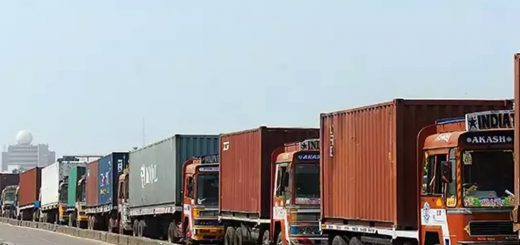What are 3PL and 4PL? Their Advantages and Disadvantages?
Supply chains involve an intricate dance of sourcing raw materials, manufacturing, distributing, warehousing, and retailing finished products. Consequently, companies strive to streamline these operations, eliminate inefficiencies, and lower costs while meeting customer expectations. Third-party logistics providers (3PLs) and fourth-party logistics providers (4PLs) emerged as solutions to tackle supply chain bottlenecks and augment business performance. Therefore, understanding the distinction between 3PL and 4PL, alongside their relative merits and demerits, proves crucial in determining the right partner for your enterprise.
What is Third-Party Logistics (3PL):
Third-party logistics (3PL) refers to outsourced services involving various aspects of a supply chain, including inventory management, warehousing, packaging, transportation, and reverse logistics. As a result, companies engaging 3PL providers aim to optimize operational efficiencies, reduce overhead costs, and focus on core competencies.
Advantages of Third-Party Logistics (3PL):-
- Scalability:- 3PL partnerships enable organizations to scale logistic capabilities based on market demands, seasonality fluctuations, or growth patterns.
- Cost Savings:- Outsourcing logistics reduces fixed costs, labor expenses, and technological investments. However, shared resources among numerous clients generate economies of scale and price reductions.
- Increased Efficiency:- Specialized 3PL providers possess sophisticated technologies, established networks, and proven processes that streamline supply chain operations, boost productivity, and decrease turnaround times.
- Flexibility:- Adaptable 3PL contracts allow firms to customize service levels, implement innovations, and shift priorities as needed.
- Core Focus:- Partnering with 3PL providers frees internal resources to concentrate on strategic initiatives, product development, and brand enhancement.
- Market Insight:- Experienced 3PL professionals deliver industry best practices, regulatory compliance, and emerging trends that positively influence business decisions.
- Global Reach:- Expanding markets worldwide necessitates specialized logistics expertise, extensive networks, and cultural awareness that 3PL providers excel in delivering.
Disadvantages of Third-Party Logistics (3PL):-
- Loss of control:- Delegating critical functions may relinquish some authority over decision-making, quality standards, and responsiveness.
- Transition Challenges:- Integrating disparate systems, training personnel, and establishing relationships may pose hurdles initially.
- Data Privacy Risks:- Potential data breaches or leakage threaten sensitive commercial information shared with external entities.
- Hidden Costs:- Additional expenses, such as implementation fees, integration costs, or penalties for poor performance, may surface mid-contract.
- Limited Collaboration:- Competitive dynamics amongst 3PL providers may impede collaborative opportunities for mutual improvement. Furthermore, abrupt termination of agreements may disrupt supply chains, jeopardize client relationships, and negatively impact financial stability.
- Contract Termination:- Abrupt termination of agreements may disrupt supply chains, jeopardize client relationships, and negatively impact financial stability. Moreover, such disruptions can lead to a cascade of challenges that affect the immediate parties and other stakeholders within the supply chain.
Also Read:- What is the Distinction Between Forward and Reverse Logistics?
What is Fourth-Party Logistics (4PL):-
Fourth-party logistics (4PL) denotes a higher tier of integrated logistics services than 3PL. In 4PL, a single provider manages the entire supply chain, acting as a centralized hub for planning, execution, and coordination. 4PL providers serve as lead logistics integrators, handling strategy development, supplier relationship management, and continuous optimization of supply chain operations.
Advantages of Fourth-Party Logistics (4PL):-
- End-to-End Visibility:- 4PL providers integrate disparate systems and monitor real-time data flows, promoting holistic insights and informed decision-making.
- Strategic Partnership:- Aligning corporate goals, values, and expectations, 4PL partnerships foster long-term commitments centered on sustainable value creation.
- Performance Improvement:- 4PL providers assess supply chain vulnerabilities, recommend improvements, and measure results consistently, driving continual refinement and transformation.
- Resource Consolidation:- Merging multi-modal transportation, warehouse facilities, and workforces under one roof leads to consolidated assets, diminishing duplicative investments.
- Innovation Adoption:- Technological advances, automation tools, and Industry 4.0 applications drive agile, digitized, and intelligent supply chain ecosystems.
- Risk Mitigation:- Centrally governing risk elements, such as regulatory compliance, cybersecurity, and environmental sustainability, strengthens resilience and safeguards reputation.
- Talent Development:- 4PL providers cultivate professional skills, nurture leadership qualities, and stimulate intellectual curiosity, creating a dynamic and thriving workforce culture.
Disadvantages of Fourth-Party Logistics (4PL):-
- Overdependence:- Reliance on sole providers may compromise autonomy, increase susceptibilities, and undermine bargaining power.
- Accountability Challenges:- Distinctive roles and responsibilities can blur boundaries, raising ambiguity surrounding liability attribution and conflict resolution.
- Cultural Misalignment:- Divergent organizational cultures, norms, and values may hamper effective collaboration and alignment.
- High Investment:- Establishing 4PL infrastructure and governance structures necessitates sizeable financial commitments and sustained stakeholder engagement.
- Complex Negotiations:- Multi-layered agreements with suppliers, distributors, and other actors introduce convoluted negotiations, demanding rigorous legal frameworks and dispute mechanisms.
- Fragmented Metrics:- Balancing competing interests and inconsistent metrics across functional domains poses measurement challenges and hinders benchmarking.
Also Read:- 7 Key Factors to Consider When Purchasing Commercial Vehicle
Which Partner Suits Your Supply Chain?
Deciding between a 3PL and a 4PL depends on various factors; chief among them are the nature of your supply chain, extant capabilities, strategic aspirations, and risk tolerance.
First, if your supply chain entails basic transportation, warehousing, and distribution activities, a 3PL likely suffices. On the other hand, should your supply chain crave sophistication, integration, and innovation, consider a 4PL. Additionally, if your organization struggles with logistics fundamentals, delegate duties to a 3PL before advancing toward a 4PL. Moreover, suppose your company seeks to leapfrog competitors by embracing disruptive technologies; in that case, pursue a 4PL. Furthermore, if controlling costs tops your agenda, opt for a lean 3PL model. Finally, if realizing synergies across siloes resonates with you, gravitate towards a 4PL.
Conclusion
Choosing between a 3PL and 4PL partner is a critical decision that hinges on your specific supply chain needs. First, if your operations require basic logistics services, a 3PL may be sufficient. On the other hand, if you seek greater integration and advanced capabilities, a 4PL could provide the comprehensive support necessary for growth. Additionally, consider your organization’s current logistics competencies and strategic goals when making this choice. Moreover, taking into account factors like cost control and flexibility will help you identify the best fit. Ultimately, both options offer unique benefits, but understanding their distinctions will empower you to make an informed decision. Therefore, carefully assessing your requirements will lead to a more efficient and effective supply chain partnership.




Recent Comments